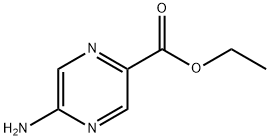In a chemistry classroom, students are discussing the presence and significance of hydrogen ions in various substances.
Derived Questions:
1.What determines the concentration of hydrogen ions in a solution?
2.How do hydrogen ions affect the pH level of a substance?
What is hydrogen ion found in?
Related Products More >
-
- 108-80-5
- USD 50.0000
- 50kg
-
- 108-78-1
- USD 4.5000
- 25kg
-
- 4559-86-8
- USD 750.0000
- 170kg
-
- 77182-82-2
- equest For Quotation
-
- 70131-50-9
- equest For Quotation



 沪ICP备2021018848号-5
沪ICP备2021018848号-5

Answer to the Derived Questions:
1.What determines the concentration of hydrogen ions in a solution?
The concentration of hydrogen ions in a solution is determined by the strength and nature of the acid present. Strong acids, such as sulfuric acid (H2SO4) or hydrochloric acid (HCl), completely dissociate in water, releasing a high concentration of H+ ions. Weak acids, on the other hand, only partially dissociate, resulting in a lower concentration of H+ ions. Additionally, the pH scale is used to quantify the concentration of hydrogen ions in a solution, with lower pH values indicating higher concentrations of H+ ions and higher pH values indicating lower concentrations.
2.How do hydrogen ions affect the pH level of a substance?
Hydrogen ions directly influence the pH level of a substance. The pH scale is a logarithmic measure of the concentration of hydrogen ions in a solution, ranging from 0 to 14. Solutions with a pH of 7 are considered neutral, where the concentration of hydrogen ions is equal to the concentration of hydroxide ions (OH-). Solutions with a pH less than 7 are acidic, indicating a higher concentration of H+ ions than OH- ions. Conversely, solutions with a pH greater than 7 are alkaline, with a higher concentration of OH- ions than H+ ions. The pH level is crucial in various applications, such as determining the suitability of soil for plant growth, maintaining the correct environment for enzymes in biological processes, and ensuring the safety and effectiveness of chemicals in industrial settings.
Notes on Usage and Application:
When working with solutions containing hydrogen ions, it is important to take proper safety precautions. Acids can be corrosive and cause skin irritation or burns if not handled correctly. Wear appropriate protective clothing, gloves, and eye protection when handling acidic solutions. Additionally, avoid mixing acids with incompatible substances, as this can lead to dangerous reactions. Always work in a well-ventilated area and follow established safety protocols for handling and disposing of chemicals.
In aqueous solutions of acids: Strong acids like hydrochloric acid (HCL), sulfuric acid (H2SO4) and nitric acid (HNO3) completely dissociate in water to release hydrogen ions. For example, HCL in water dissociates as HCL → H+ + CL-. Weak acids such as acetic acid (CH3COOH) also release hydrogen ions, but only partially.
In acidic salts: Some salts, like ammonium chloride (NH4CL), can produce hydrogen ions in water. The ammonium ion (NH4+) can undergo hydrolysis to release H+:NH4++H2O=NH3+H3O+.
In pure water: Through the process of autoionization, water molecules can dissociate into hydrogen ions and hydroxide ions in a very small extent:2H2O=H3O++OH-, where H3O+ is often simplified as H+.
In the human body: Hydrogen ions are present in body fluids. For instance, in gastric juice, hydrochloric acid provides hydrogen ions that help in digestion.